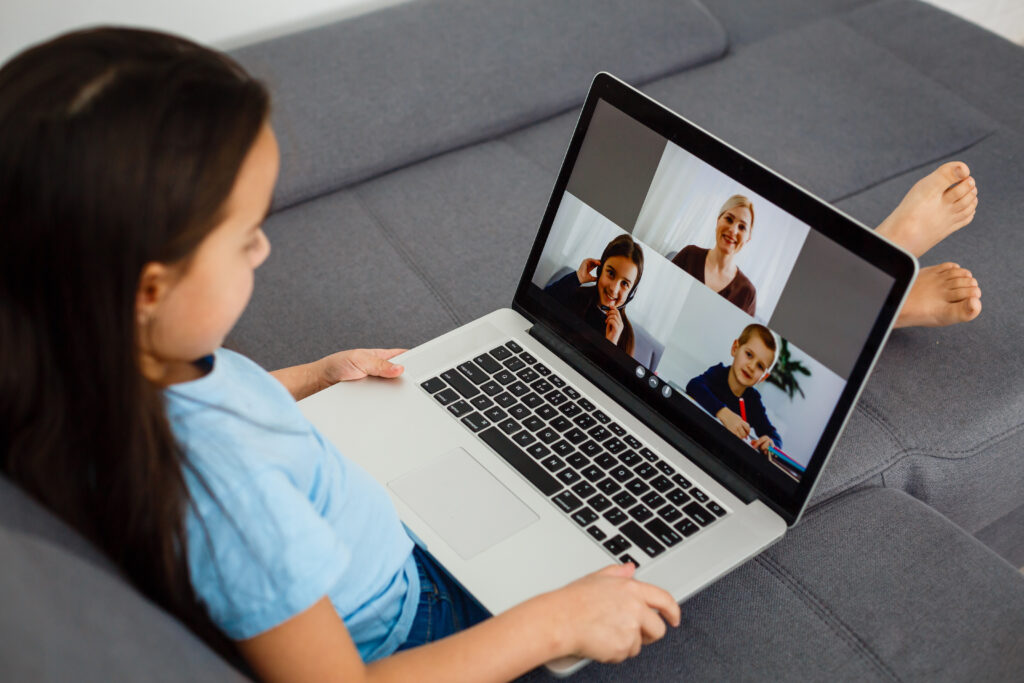
Photo Credit: Andrew Angelov/Shutterstock.com
By YLAC members Alex Duarte and Alex Niles
The pandemic both highlighted and accelerated the growing importance of broadband as one of the foundational pieces of infrastructure for 21st century California. Shifting classrooms, work, doctors appointments and social interactions online showed us the potential to address glaring inequities and improve life for millions with digital solutions. Remote work brought flexibility and balance and made more jobs more accessible for people living with disabilities. Online healthcare delivery could be cheaper, faster and more available to people in underserved areas.
Yet the pandemic also laid bare the impact of California’s digital divide: that disparities in broadband accessibility, reliability and affordability threatens to deny these opportunities to millions of Californians. In 2020 and 2021, lack of broadband access helped drive disparities in learning loss that most impacted low income students of color. Today, these disparities threaten to retrench disparities in education, employment, financial and health outcomes.
Young Californians will be among the most impacted by the state’s success or failure in closing disparities in broadband access. As social distancing wound down, we returned to classrooms or entered jobs that had become more digitally integrated than ever. Ours and future generation’s success at achieving our state educational and career aspirations — and our state’s success at training and educating the workforce it needs for a 21st century economy — is profoundly linked to our success at extending broadband access to those for whom its currently denied. Put simply, the digital divide is one of the critical youth issues of our time.
Low income and communities of color are less likely to have broadband access for numerous reasons, including a lack of infrastructure providing broadband to these communities, not enough infrastructure to support a reliable connection in densely populated areas, or the price of broadband being unaffordable to these individuals.
State policymakers have taken steps to begin addressing this issue. Enacted in 2021, Senate Bill 156 allocated $6 billion toward providing equitable access to high-speed broadband in unserved and underserved communities throughout the state. This session, the Legislature is considering multiple broadband proposals. Assemblymember Wilson’s AB 1588 would ensure affordable home internet service that meets a specified minimum speed for qualifying individuals.
AB 2575, introduced by Assemblymember Boerner, would declare the intent of Legislature to enact subsequent legislation that would establish requirements related to the provision of broadband internet access service. Assemblymember Bonta introduced a bill, AB 2239, that would declare the intent of the Legislature to codify a definition of “digital discrimination of access” that aligns to the one used by the Federal Communications Commission.
These policy changes lay the groundwork for closing the digital divide for good. Recognizing the centrality of this issue for our state’s youth, the Young Leaders Advisory Council (YLAC) partnered with AT&T to bring awareness of the impact the digital divide has among youth, primarily in low income communities and communities of color, to help shape policy recommendations, and to encourage young leaders, state leaders and other stakeholders to work together to develop solutions ensuring broadband is accessible, reliable and affordable for all.
The CA FWD Young Leaders Advisory Council is composed of Californians ages 17-24 from diverse backgrounds who are committed to intergenerational collaboration in engaging underrepresented communities with the policy-making process through personal narratives and data-based recommendations.

